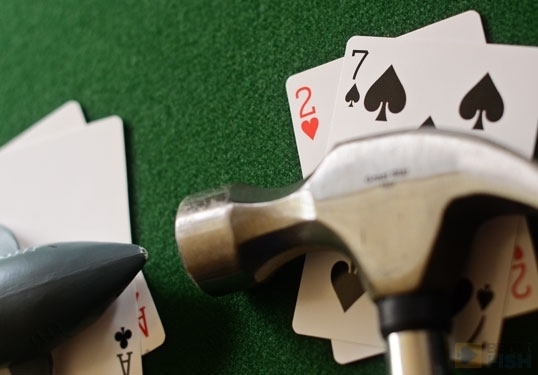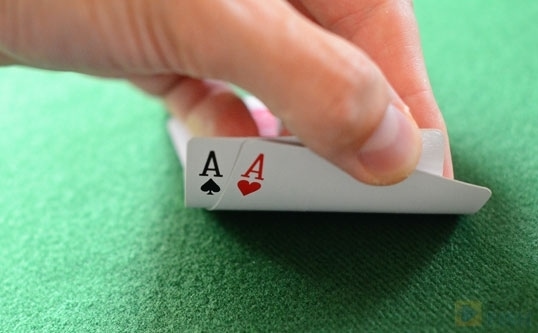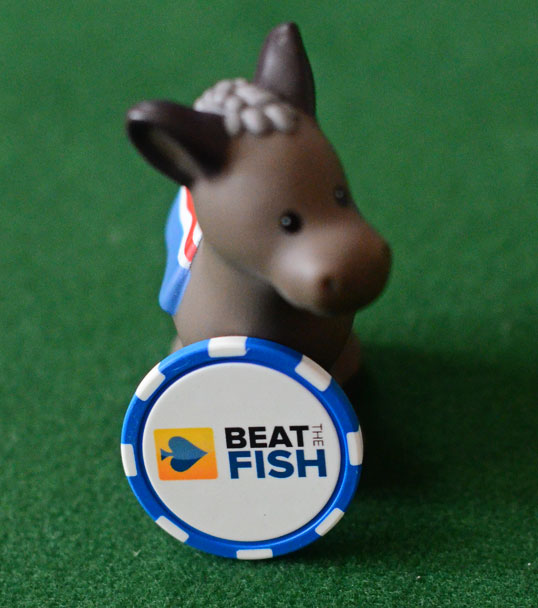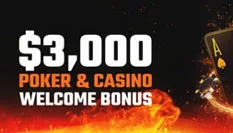How to Deal with the Worst Poker Bad Beats

- A bad beat or suck out occurs when a player loses a hand in which they were an overwhelming statistical favorite to win.
- Can naturally be incredibly frustrating. Controlling that feeling may be what makes you a long-term winning player.
- The chance to put a bad beat on a better player is necessary to attract low-quality opponents to the game of poker.
- Avoid tilt at all costs after a bad beat.
- It can be helpful to listen to and tell your bad beat stories to other players. Do so with humility and you’ll get a lot more sympathy.
- Frequent bad beats actually mean you’re playing the right way. You have to be the favorite when the money goes in to suffer a bad beat.
With the phenomenal surge in poker’s popularity both in cardrooms and online, thousands of new players descend on the game every day. Combine inexperience with fast-paced online games and the result is an abundance of poker bad beats.
No poker player is immune from bad beats and that is part of what makes poker a great game. Admittedly, I may not share that opinion immediately after my pocked Aces get cracked for a few hundred bucks.
Table of Contents
Players often forget that luck exists in poker hence the bad beats
Bad beats happen because, of course, there is an element of luck in poker. A hand that is an overwhelming favorite to take down the pot before the flop, turn, or river is just that: a favorite.
Probabilities and odds don’t guarantee results.
Essentially, poker bad beats are needed to keep new players interested and fresh money brought to the tables. After all, who would take up the game if they didn’t have a chance to beat more experienced players on any given day?
Skill does prevail over luck in the long term
Try to take solace in the fact that skill does prevail over luck in the long term. If it didn’t, would there be professional poker players?
The overwhelming majority of us have a tough time dealing with bad beats psychologically, at least temporarily. If you think it’s a beginner’s weakness to be unable to control emotions after a pot has been cruelly taken from victory’s grasp, flip on ESPN and listen for those bleeps after a pro busts out of the WSOP on a 2-outer.
In the following sections I’d like to not only give you some simple tips on dealing with poker bad beats, but also define them for beginners, provide some entertaining bad beat tales, and explain why bad beats can actually be encouraging for your level of play.

What exactly is a bad beat?
A poker bad beat occurs when an overwhelming favorite loses the hand. Examples of extreme bad beats would include pocket Kings beating pocket Aces with a third King on the river or a player hitting an inside straight on the river to beat a made hand.
In both of these situations, the drawing hand would have, at maximum, 4 outs (cards to come to give a winning hand) and less than a 10% chance of winning.
Lesser bad beats include getting beaten with a made hand like top pair or two pair by a flush or straight draw on the river. While many players feel like they’ve encountered a bad beat in this situation, the draw has a fairly high number of outs.
A common situation that shouldn’t be considered a bad beat occurs when a pocket pair loses to two overcards in an all-in tournament situation. The two hands are essentially even-money favorites to win preflop.
To suffer a true bad beat a player must dominate his opponent’s hand, play it properly, and still lose. A bad beat is also referred to as a “suck out” with the underdog “sucking out” on the favorite.

The misery of bad beat stories
A natural reaction to suffering a poker bad beat is to want to tell the world about it. Players usually want sympathy and understanding from fellow players and reassurance that the loss wasn’t their fault. While this is certainly understandable, it is poor poker etiquette to complain about bad beats at the table.
Most of your tablemates simply won’t care as they’ve experienced the same situation countless times themselves. The only thing you accomplish by spouting off is pegging yourself as a target on tilt.
While bad beat stories are often tiring to experienced players, they can always be useful if analyzing the strategy used to prevent future suck outs. Bad beat stories can also be entertaining if told with a sense of humility rather than bitterness.
We’ve all given and gotten our fair share of bad beats and, hopefully, can look at them as humorous aberrations from the poker gods in our long-term poker careers.
The following bad beat stories are a couple of my favorites:
• Thank Goodness for the Hand Strength Indicator

Gain some perspective on bad beats
A point from a Mike Caro article that I read when I first started playing Hold’em online that has always stuck with me goes something like this:
If you’re encountering a lot of poker bad beats it’s a good sign and means that you’re playing well.
Huh? If you think backwards this completely makes sense.
You suffer bad beats after you have the best hand when all the money goes into the pot. If you’re repeatedly the favorite when most of your money is committed then you’re playing proper poker.
Forcing your opponents to need a miracle card to beat you every time is exactly what you want in the long run. You should take every opportunity to commit all your chips against an opponent on a draw.
Realizing that you actually made the right play
While it may be little consolation after suffering your umpteenth straight bad beat, try to think objectively and realize that you still made the right play. Don’t alter your strategy simply based on short-term results.
Modern poker players are certainly faced with an increased level of bad beats due to the massive amounts of inexperienced players and the faster pace of online games. That being said, the game’s never been more profitable for those who can psychologically overcome short-term bad luck.
The heart of this site lies in the ability to teach frustrated players how to “beat the fish“. Hopefully, the following resources I’ve written can help you incorporate some specific strategy to combat soft tables and, ultimately, lead to less bad beats.











The above reestablishes the importance of not allowing yourself to be short stacked. Any player who has had some luck and has doubled or tripled their stack, seeing an “All in for $75 to $100, will likely take a shot at you. If you are all in for $200 plus, it won’t, as a rule, be the lucky amateur who takes his shot, but an experienced player. Believe me we have all bitten our tongue on someone hitting those 2 to3 outers. Also, remember adverse probability can last for an inordinately long time. There is absolutely no way to totally eliminate bad beats. Good Hunting!!
That’s a good point. Being shortstacked certainly does open yourself up to taking bad beats. Your opponent has a finite risk amount and few complex decisions to make. Often that will make you a tempting target with more speculative hands.
I read something from Mike Caro years ago that I’ve never forgotten: “If you’re running into a lot of bad beats it’s because you’re making the right decisions.” Strange to think about, but absolutely true.